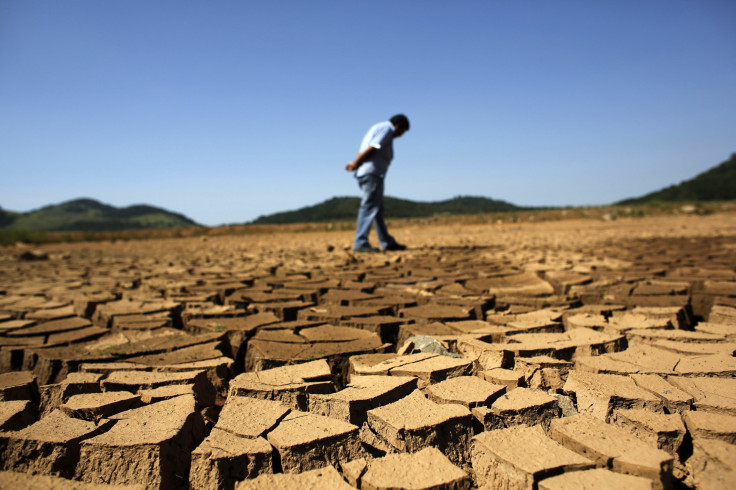There Is A 99% Chance Climate Change Is Not Natural, Says Researcher Using Historical Data, Not Computer Models

As the debate continues over whether rising global temperatures and wacky weather are man-made or simply natural fluxes in Earth’s climate, one climatologist says the answer unequivocally points human involvement. Most notably, he analyzed seldom-used sets of data to arrive at his conclusion.
Instead of relying on sophisticated computer models to chart the effect of greenhouse-gas emissions on Earth’s climate, a researcher from McGill University in Montreal turned to historical and empirical data dating back to the 16th century, including that found in ice cores, lake sediment records and studies of Greenland’s ice cap.
Based on his research, Shaun Lovejoy, a nonlinear physicist at McGill and lead author of a study published Friday in the journal Climate Dynamics, says there’s a 99 percent chance global climate change is not natural. Lovejoy has ruled out the natural-warming hypotheses, joining the 97 percent of scientists from around the world who have done the same. Lovejoy’s research adds to the growing pile of evidence that suggests climate change is the result of anthropogenic causes.
“There’s a difference between trying to prove a theory is correct and trying to prove something incorrect,” Lovejoy told Motherboard. “If we can’t prove the theory, we can reject the hypothesis that all we have is natural variability. I’ve rejected that with a 99.9 percent level of confidence.”
According to a statement released by McGill, Lovejoy’s analysis uses carbon dioxide from the burning of fossil fuels, the No. 1 contributor to greenhouse gases, as a proxy for all man-made climate influences. Lovejoy found that doubling the carbon-dioxide levels in the atmosphere would raise the global mean temperature by between 2.5 and 4.2 degrees Celsius, a prediction similar to that made by the Intergovernmental Panel on Climate Change, or IPCC.
“This study will be a blow to any remaining climate-change deniers,” Lovejoy said. “Their two most convincing arguments – that the warming is natural in origin, and that the computer models are wrong – are either directly contradicted by this analysis, or simply do not apply to it.”
The new study comes just before the IPCC announced Sunday that it’s not too late to curb the effects of climate change, but that governments must act quickly. According to the IPCC, we can still avoid major catastrophes associated with climate change by turning to clean energy and ditching fossil fuels.
The new report concluded that diverting hundreds of billions of dollars from fossil fuels into renewable energy would hinder annual economic growth rates by just .6 percent. Still, the negative effects of cutting biofuels on food prices and wildlife remained “unresolved,” according to the Guardian.
© Copyright IBTimes 2024. All rights reserved.












